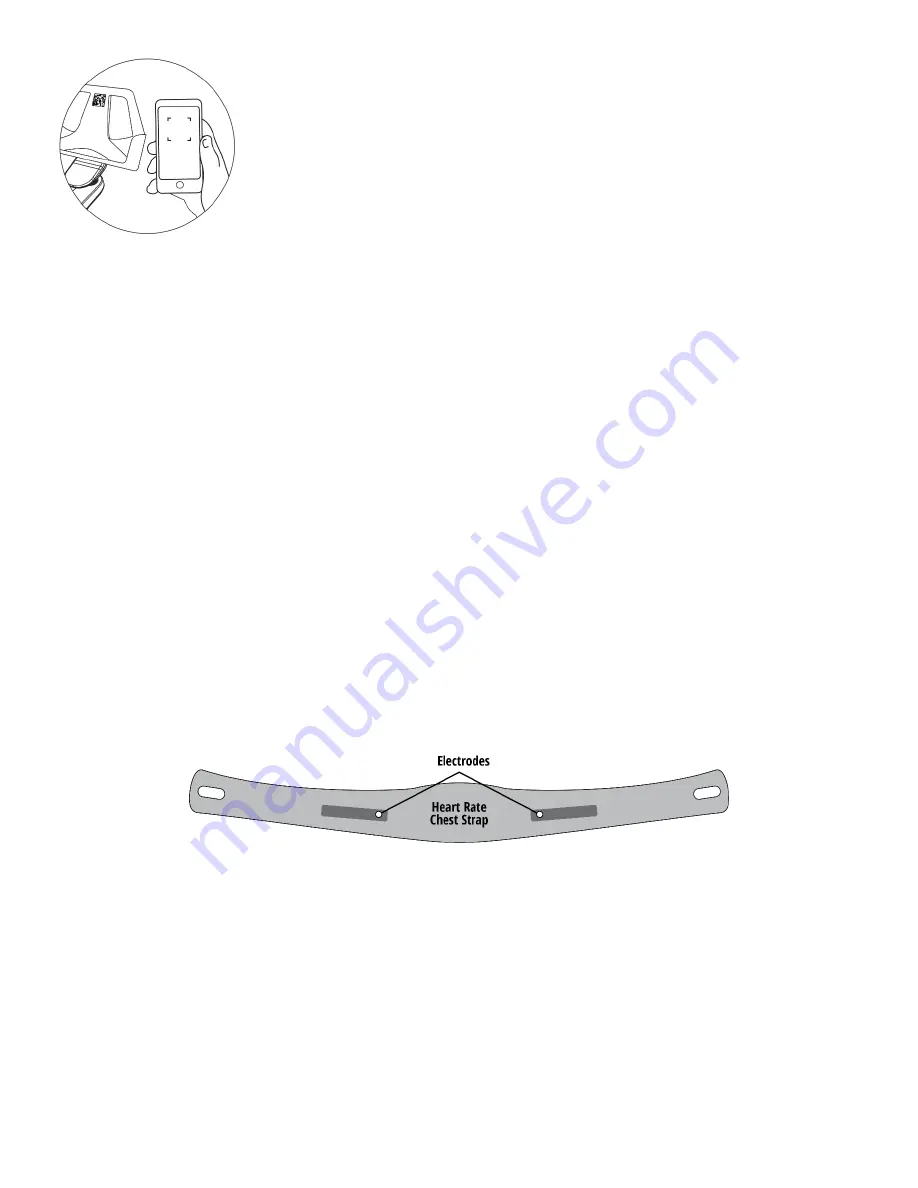
Page | 11
USING A WIRELESS BLUETOOTH HEART RATE RECEIVER
In general, a wireless heart rate chest strap (not included) is the most accurate and convenient
method of detecting and monitoring a heart rate signal. Occasionally, certain factors can
negatively affect the accurate transmission of the heart rate signal. Wi-Fi networks, cordless
telephones and large electrical appliances may degrade or corrupt the signal so that the rate
appears erratic or impossibly high. The only remedy for such a symptom is to isolate the unit
from potential disturbances. Additionally, a person’s body chemistry or lack of perspiration can
prevent the chest strap from providing a strong or accurate heart rate signal.
A wireless telemetry heart rate receiving system is one feature found on this unit. For the unit
to detect and display your heart rate wirelessly, five (5) conditions must be present:
1.
A compatible Bluetooth BLE or ANT+ heart rate transmitter must be functioning and
worn. For proper function,
please refer to the manufacturer’s instructions.
2.
The unit must have a functioning battery and be powered on by the user pedaling the
unit.
3.
The user is within three (3) feet of the unit.
For strong transmission of the heart rate signal, lightly wet the chest strap electrodes (the two
molded, rectangular surfaces on the backside of the strap) and secure the strap as high under
the chest muscles as possible. The strap should be snug, but comfortable enough to allow for
normal breathing. For detailed and model specific information, read and follow the heart rate
manufacturer’s instructions.
The chest strap will deliver an optimum heart rate reading when the electrodes are in direct
contact with bare skin or in some cases, through wet, lightweight clothing. If necessary,
moisten the chest strap electrodes by pulling the center of the chest strap away from the chest
to expose the two electrodes.
GENERAL NOTES
ANT, ANT+ and the ANT+ logo are trademarks of Garmin Switzerland GmbH. The Bluetooth®
trademarks
—
including the BLUETOOTH word mark, the figure mark (the letter "B" and oval
design), and the combination mark (Bluetooth word mark and design)
—
are owned by the
Bluetooth SIG.
Summary of Contents for IC 1.5
Page 3: ...Page 4 WARNING LABEL PLACEMENT...
Page 4: ...Page 5 ASSEMBLY AND SETUP Package Contents...
Page 14: ...Page 15 IC1 5 PARTS LIST...
Page 15: ...Page 16...































